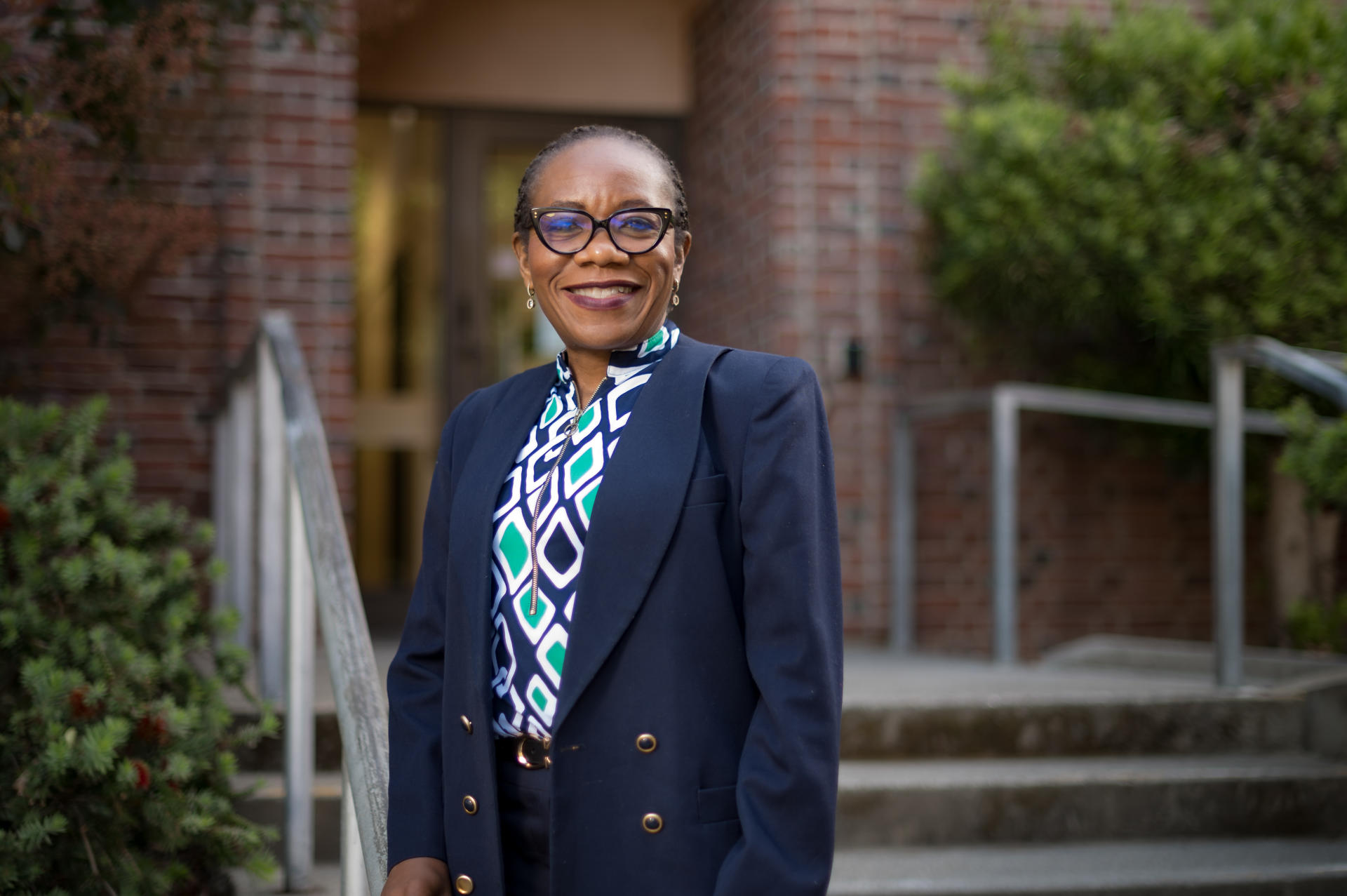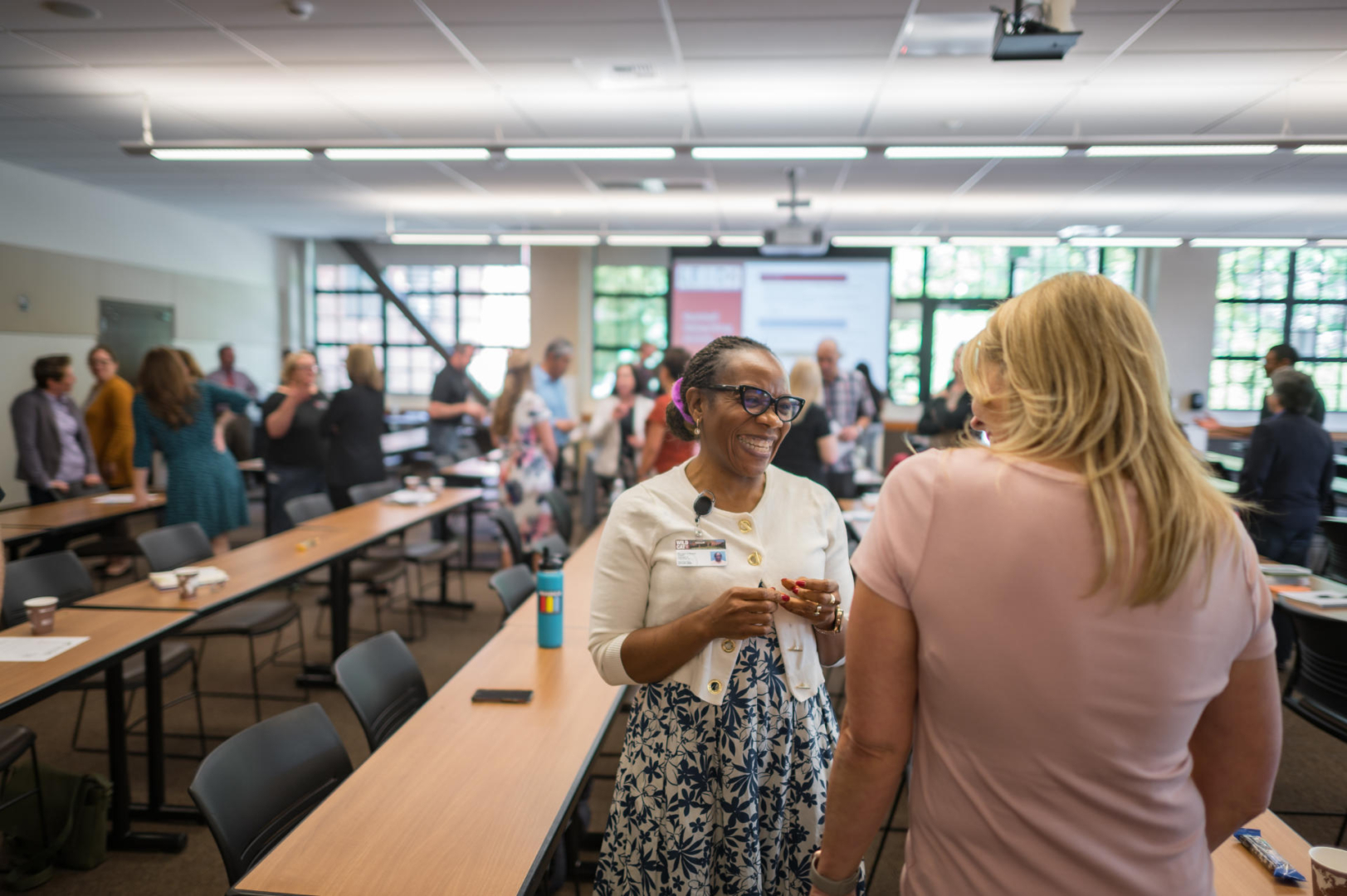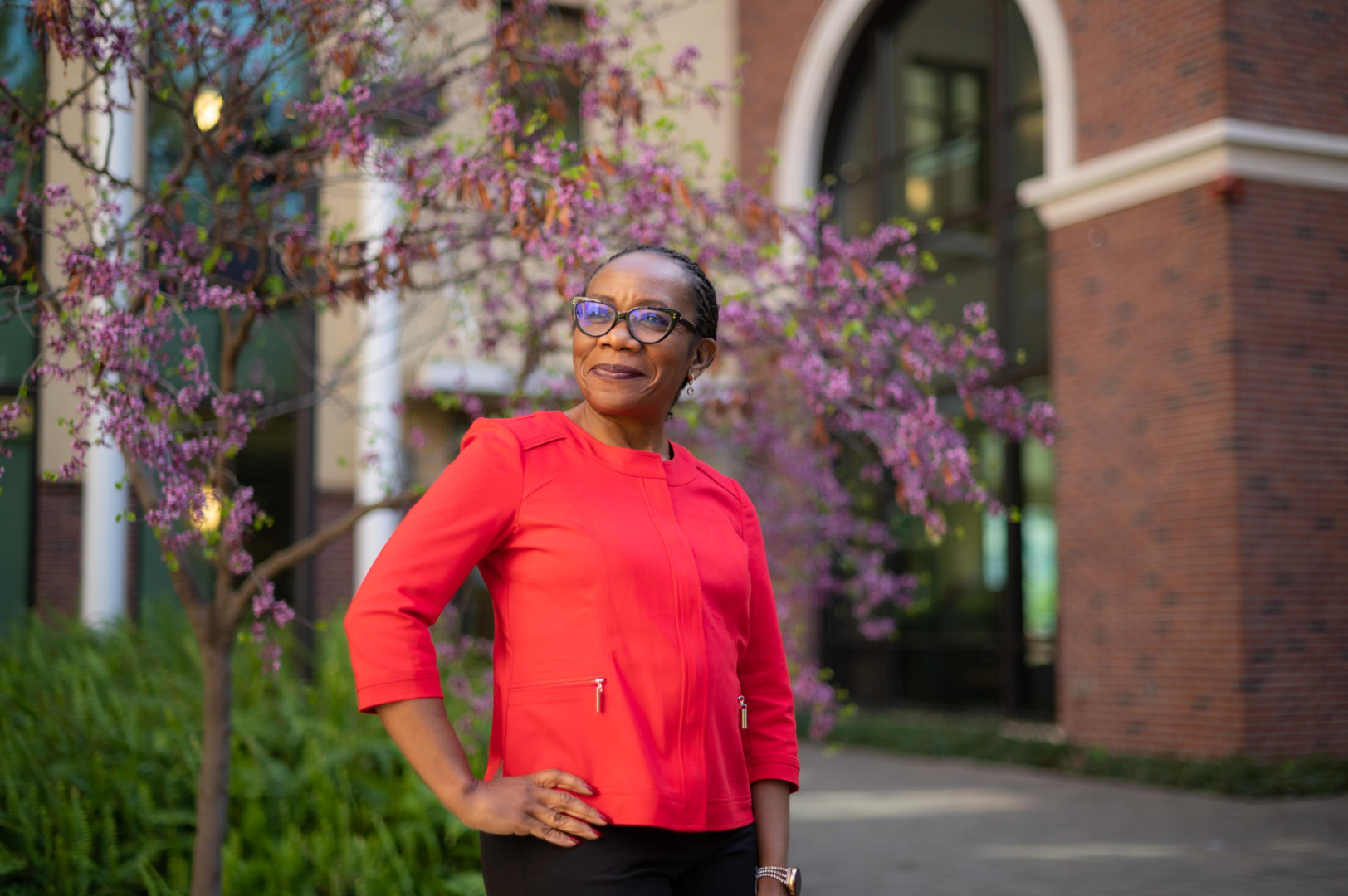Meet: Monique Sendze

Vice President for Information Technology & Chief Information Officer Monique Sendze is photographed on Thursday, April 7, 2022 in Chico, Calif. (Jason Halley/University Photographer/Chico State)
During the dot-com boom of the ’90s, Monique Sendze envisioned blending her love of teaching with the rapidly advancing Internet for a career in educational technology. Her sisters nudged her to take a slightly different approach.
As information technology began its ascent, so did Sendze. She would go on to spend nearly 25 years in library services, local governments, and higher education—always seeing technology as a tool to achieve any mission.
She now brings her passion and experience to Chico State as vice president and chief information officer for the University’s new Division of Information Technology. With technology ubiquitous at higher education institutions, Sendze views it as an enabler to greater things, not an end in itself.
“We use technology to enable the mission of the organization,” she said. “Technology all by itself is meaningless if you cannot deploy the right technology and the right people to actually affect that mission.”
Following her family’s emphasis on education as she grew up in Cameroon, Sendze graduated from the University of Yaoundé with her bachelor’s degree in English and then earned a master’s degree in educational sciences, pedagogy, and applied linguistics from the University of Yaoundé Teacher’s Training College. And, as the youngest daughter of parents who came to the United States for college and with two older sisters who also studied in the States, Sendze was certain her path would also lead here. At age 25 she moved abroad to pursue her doctorate, eventually completing her EdD in education, organizational leadership, and organizational development from Grand Canyon University.
Today she uses her backgrounds in English and technology to communicate often-complex concepts around technology with colleagues and stakeholders.

“I talk to people about technology in the simplest of forms for them to understand it and simplify some of those concepts in ways that people can actually see it, feel it, and experience it just through the use of language,” she said.
With an educator’s mindset, she spent 20 years in the public library space before transitioning into higher education at Colorado Schools of the Mines, where she was chief information officer and deputy chief operating officer. No matter the task, her goal is to support student success.
“As higher education educators, we show up with a mission,” she said. “That mission is to teach, to help our students learn, and to help them participate in research that can really change the world.”
She emphasizes that mentorship and sponsorship were both vital to her success as she ascended to leadership roles in the traditionally male-heavy fields of business and IT.
“For me, mentors were those that really helped me prepare myself to navigate some of those challenges that I would face, or that I even continue to face, as a minority in a field that is predominantly male-dominated,” she said.
With that private advice, support, and coaching, she also benefitted from sponsorship, which Sendze describes as a public relationship where a senior leader advocates for the protégé’s promotion and fights for them in places where they cannot advocate for themselves.
“Sometimes as women, we’ve been over-mentored and over-coached, but under-sponsored,” she said. “As women, as minorities, we need those people who were willing to put up their political and social capital on our behalf.”

Chico State’s commitment to equity, diversity, and inclusion was one more reason she was drawn to the University for the opportunity to serve as its inaugural CIO of Information Technology.
“I look for institutions that really have that at the core of their mission and actually live it through the lived experiences of the students, faculty, and staff,” she said. “When I looked at the strategic priorities of Chico State, equity, diversity, and inclusion were right at the top. I realized it wasn’t just one of those checkbox items, but there’s that institutional commitment to making sure that it truly happens, that it resonates, and that when you come to Chico State, you can see it, feel it, and experience it.”
As the University is committed to advancing social justice and equity, she’s hopeful that it is ripe for change in other ways and sees many of higher education’s adaptations in the last two years as a cause for optimism.
“Institutionally, we have not been known to be the quickest and fastest in anything,” she said. “Change is not something we deal with very well within higher education.”
But the COVID-19 pandemic forced colleges and universities around the world to change perhaps faster than ever before, and there were plenty of successes that will continue to impact student and institutional success. Pivoting to online instruction, shifting paperwork to a digital format, and providing students with laptops and wireless hotspots enabled them to continue their education and pursuit of their degree.
“COVID has shaken things up a bit, and my hope is that we build on that momentum to really move our institutions forward in service to our students,” she said. “Technology in higher education is going to evolve, and a lot of it is going to be centered around student success.”


